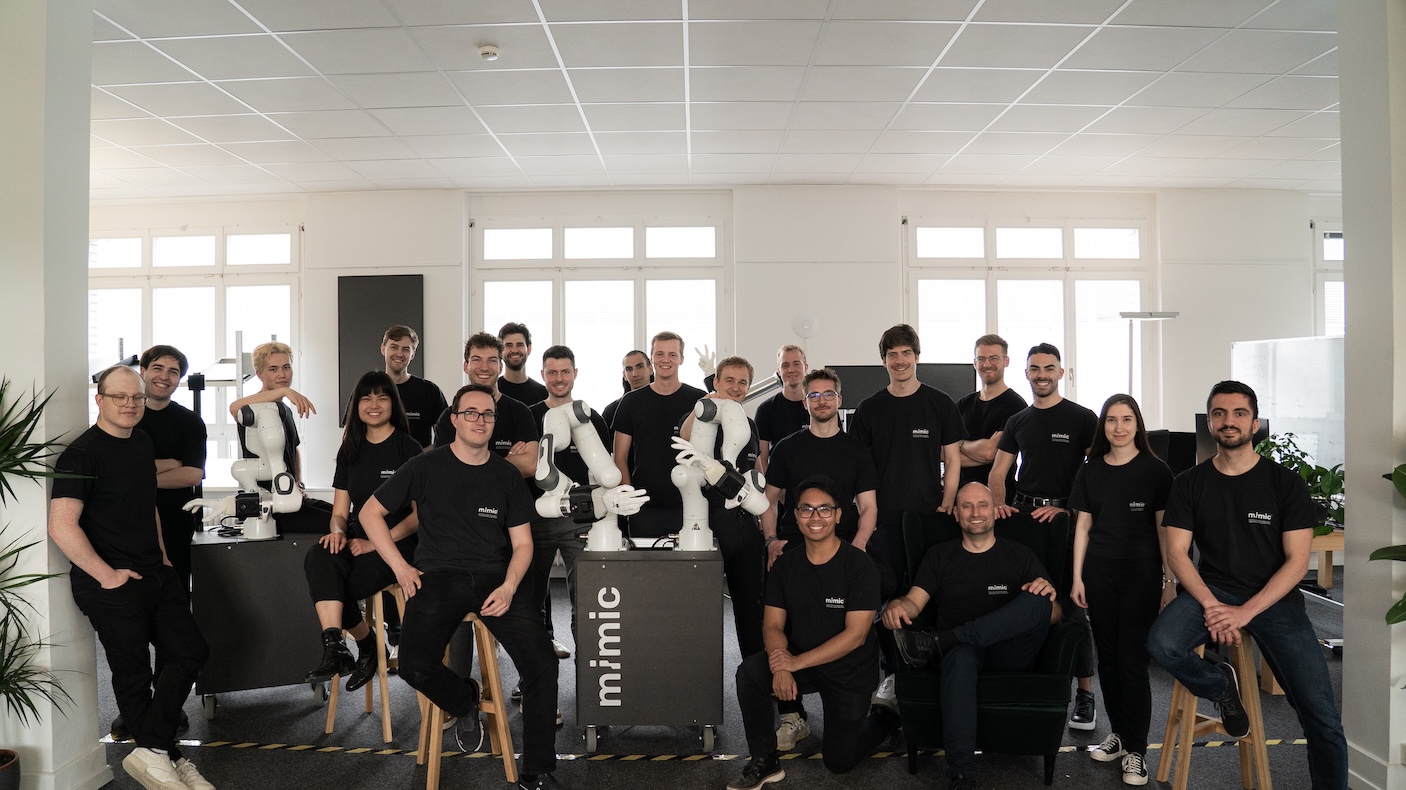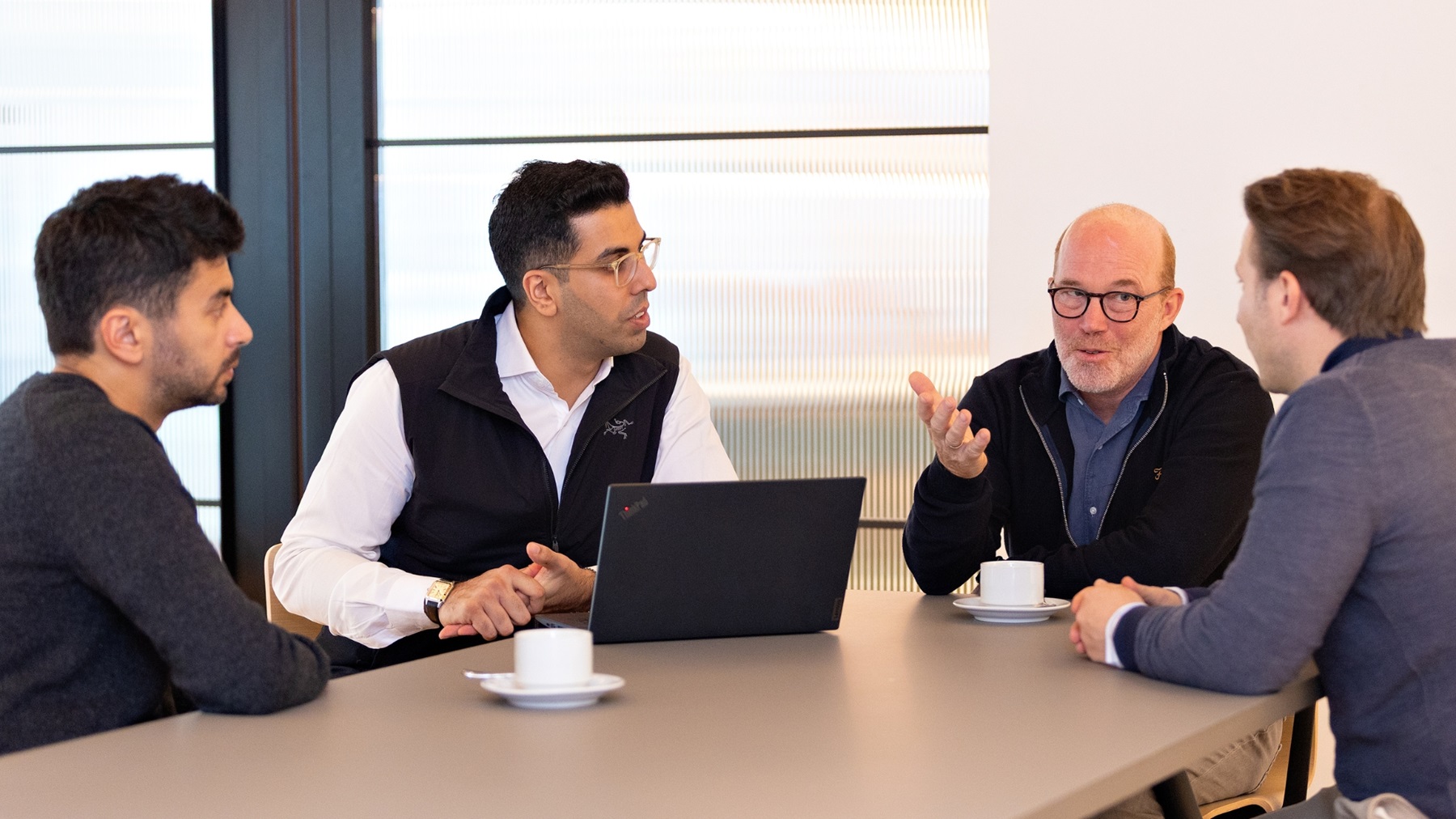Scaling Up? What Founders Need to Know: An Interview With Manolis Manassakis
Manolis Manassakis started his career at Google before moving to Uber where he served as Head of Marketplace and later Director of Operations for Europe, Middle East, and Africa. Today, Manolis serves as COO of Qogita, helping torevolutionize global wholesale through technology, but he is also an active angel investor through Cloud Nine Ventures, helping startups and mentoring founders on operations, scaling, and international expansion thanks to his 15 years of experience launching and scaling established companies into new markets and leading rapid scaleup companies.
Manolis will be hosting a special masterclass at The Marketplace Conference in Berlin on October 11th where he will talk about the Evolution of Marketplace Dynamics, discussing how marketplace businesses should evolve the way they think about and execute marketplace dynamics as they scale up.
Leading up to the session, I sat down with Manolis to talk about his passion for the “Optimal amount of Chaos” at early-stage startups and, particularly, marketplaces. He also shares his key learnings from his time at Uber, including how Uber cracked their marketplace dynamics as well as top tips on how founders should execute marketplace dynamics as they scale.

What led you to the startup world in the first place?
It was part choice, part chance. After law school, I joined Google rather randomly, after meeting a Google employee at a social event, back when Google was launching its Greek office and was hiring its first local employees. Transitioning from big tech to the startup world was a conscious decision.
I love what I like to call the, “Optimal amount of Chaos.” The more mature and established an organization, the more streamlined and “linear” it usually is. Startups in the early stage but with enough validation offer some sense of directional clarity, but are also messy enough to be exhilarating.
When did you first get interested in marketplaces and why? What brought you to Uber?
Since the beginning of my career, I‘ve always been very drawn to marketplaces. What fascinates me is the complexity and the challenging dynamic of trying to satisfy multiple considerations at the same time: demand, supply, top line, bottom line, scalability, and often many more.
Uber for me was an absolute no brainer career choice. Right after my MBA, I had the chance to lead the company in Greece, look after all sides of a complex business, and help improve mobility in my home country. It was an irresistible combination!
How did Uber crack the rider business, specifically the demand side of the marketplace, and what were the hardest challenges you had to tackle?
That could take hours to discuss, but trying to be concise, the main tools were:
- quickly developing a solid supply side through strong initial investment, which in turn draws demand
- an extremely data-driven and algorithmic approach to demand generation and retention
- maximizing utilization to enable high driver earnings at an appealing rider price point
In my opinion, the biggest challenge in ridesharing is the competitive dynamics––how to grow or protect market share cost-effectively in a space characterized by low global network effects (evaporates the first mover or scale advantage we typically see in global spaces), and consumers’ focus on price, which makes it harder to differentiate on quality.
Without spoiling the topic of your live talk too much, what do you think are the key factors marketplace founders should make sure they have set up from day one, which would then help them in the scaling up phase?
If I have to summarize, the key factors would be:
- In order to build initial liquidity, minimize the switching cost of target customers by transacting in the existing ways market actors are accustomed to, and after that
- Plan how to (A) streamline and (B) standardize as the marketplace gains liquidity and buyer/seller power, indicated by a share of wallet threshold or simply the strong belief in the vision by early-adopting actors.
- Consider value-capturing ability early. Naturally, the earlier you go, profitability / margin is less relevant than volume / growth, but it is a key point to validate. Prove to yourself you can command a reasonable take rate, and you can then choose to translate it into either superior demand-side pricing or increased supply-side benefits to boost growth.
From your experience launching and scaling Uber in new geos, do you have any advice or growth hacks that you could share specific to expansion strategy?
Well, every local leader intuitively considers their market inherently different and unique, but I think we very often overestimate local peculiarities simply because we don’t have a simultaneous deep overview of enough markets to realize the common patterns and groupings.
At Uber, we perfected the “playbooked launching.” By using what works globally and identifying four to five key market archetypes, you can scale quickly and successfully. For any truly exceptional market factors, you can of course tailor your approach.
What led you to start Cloud Nine and what is the one marketplace business you are most excited about within your portfolio?
Together with my partners, we had already backed tens of companies as individual angels, and spoken to hundreds of founders who reached out for advice. We started Cloud Nine because we realized something quite simple: We loved working with founders, and thanks to our substantial full-time operational roles and highly complementary backgrounds, we can help early stage teams across all core needs of their business.
If I think about my favorite marketplace investment so far, it is definitely Timberhub, even though I am biased as a friend, investor, and board member!
Timberhub encapsulates everything you would look for: An excellent team we’ve known personally for years, executing exceptionally in a vast, untapped fragmented space, and painful and archaic status quo. All the right ingredients for a meaningful marketplace.
What are the biggest opportunities you see in the market and in marketplaces today and are most excited about at Cloud Nine?
At Cloud Nine, we are mostly excited about:
- European leadership. For the first time ever, we're seeing European startups take the lead in some spaces versus merely playing catch-up with their US counterparts.
- Increasing consolidation of services which leads to deeper vertical integration, better margins and more solid moats. (For example, Payments, Fulfillment, MarTech, and so on.)
- Proliferation of vertical marketplaces. We are transitioning from "one-size-fits-all" to the next generation of solutions that cater to specific needs, like EdTech and Climate.
What are your biggest takeaways from your experience as Head of Marketplace at Uber that no other marketplace could have taught you? What should others know?
The notion that marketplace dynamics are not necessarily a zero-sum game, where founders need to trade between mutually exclusive objectives (the classic one being buyer price versus seller earnings versus take rate).
Efficiency and subtle but impactful features can push the curve to the right and generate benefits across all sides. For example, higher utilization thanks to constantly improving matching technology and algorithmic driver incentives at Uber generate the holy grail of lower rider price, higher driver earnings and solid service free.
Marketplace Conference 2022
Want to hear more from Manolis on the evolution of marketplace dynamics and how marketplace businesses should evolve how they think about and execute them from phase zero to the scaling up phase? Join us at The Marketplace Conference and sign up to Manoli’s Masterclass The Evolution of Marketplace Dynamics LIVE in Berlin on October 11th at 14:00 CET.













.svg)
